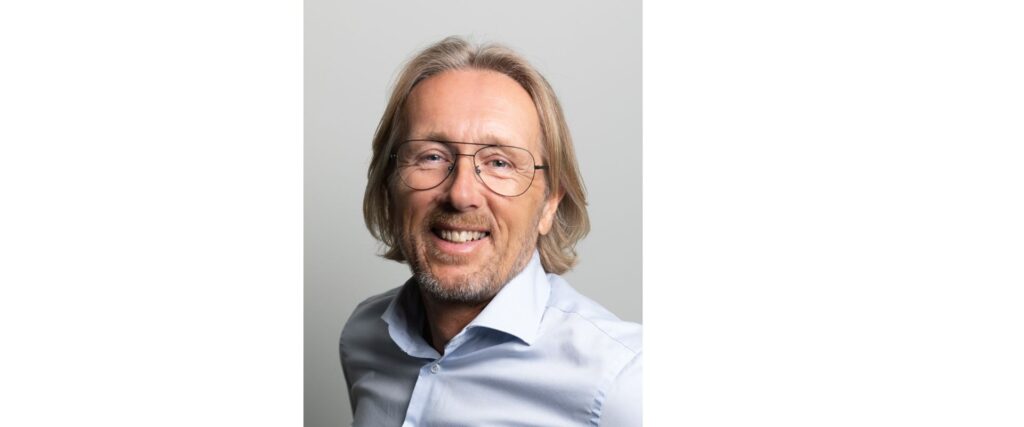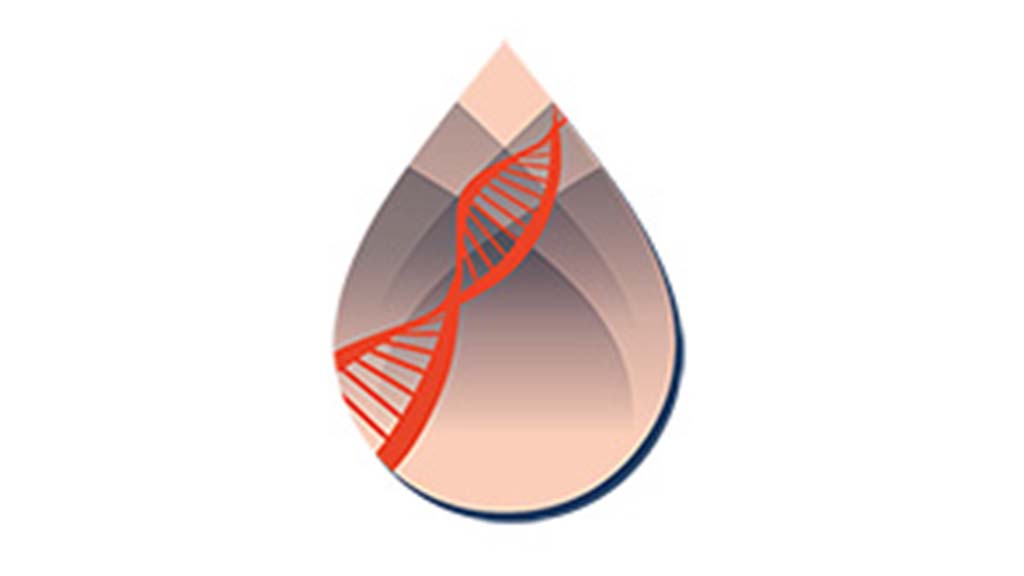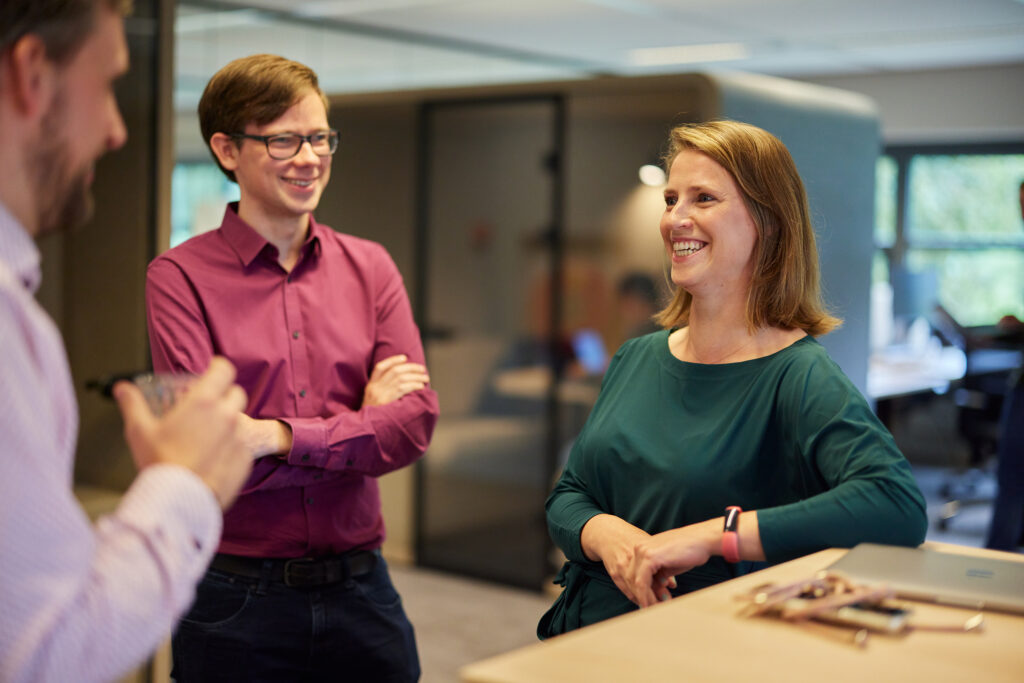Collaboration as the foundation for faster, better, and more affordable diagnostics

For Kees van den Berg, the CEO of GenomeScan, the collaboration between his organization and the Hartwig Medical Foundation is essential to elevate molecular diagnostics to the next level.
Since the laboratories of academic hospitals began using sequencing for molecular diagnostics, much has changed. “Molecular diagnostics in general has grown rapidly over the years,” says Kees van den Berg, “not only technologically, but also in the number and types of procedures.” This is why GenomeScan started offering this as a service provider for hospitals. “The facility we have developed for this enables us to do this faster, better, and more affordably, with three university medical centers (UMCs) as shareholders. Hospitals often struggle to optimally utilize all those expensive sequencing machines, but thanks to the scale we’ve created, we can.”
GenomeScan’s specialization in Whole Genome Sequencing (WGS) is a logical step, he explains. “You can read half a book or the whole thing,” he says, “and the same applies to DNA. The only reason why WGS was not used more widely before was because the WGS test was too expensive. However, it is now clear that this will become the leading test—sooner in clinical genetics than in oncology, but eventually certainly there as well.”
Kees van den Berg, CEO GenomeScan
“You can read half a book or the whole thing and the same applies to DNA.”
Fruitful collaboration
Van den Berg emphasizes the enormous importance of the collaboration between GenomeScan and Hartwig Medical Foundation. “We are both not-for-profit organizations that make our knowledge and expertise available to healthcare,” he explains. “Hartwig Medical Foundation has developed an excellent test and used it to build a database for characterizing oncological conditions. And they have set up a pipeline for WGS and other tests which are highly valuable for this purpose.
Kees van den Berg, CEO GenomeScan
The collaboration between GenomeScan and Hartwig Medical Foundation is enormously important”
“We started around the same time—they with a test that was not yet reimbursed, and we with one that was. Now we’re working together to improve molecular diagnostics. The tests themselves are crucial, but even more important is storing data and making it available for scientific research.
“Our focus is on production, clinical genetics operations, and proving feasibility, while Hartwig Medical Foundation has a streamlined analysis pipeline and a valuable database. So, we’re bringing together two unique areas of expertise by working together. We aim to make WGS more accessible for faster and better diagnostics and, consequently, more effective treatment.”
A step forward in development
Van den Berg sees a major development in WGS through the transition from short-read sequencing, currently the standard, to long-read sequencing. “This will play an important role in molecular diagnostics because it will allow us to detect disorders that cannot be identified with short-read sequencing. Structural variations in genomes are much easier to determine using long-read sequencing, enabling diagnostics for conditions that would otherwise go undetected.”
Kees van den Berg, CEO GenomeScan
“We’re working together to improve molecular diagnostics. The tests themselves are crucial, but even more important is storing data and making it available for scientific research”.
The technology behind long-read sequencing has existed for over a decade. “Over time, it has improved significantly, becoming faster and more cost-effective,” says Van den Berg. “This means that this sequencing technology can now be more widely implemented in laboratories. Its development is still primarily taking place within clinical genetics. But experience is also being gained with brain tumor surgeries where long-read sequencing is used to determine the type of tumor as a basis for deciding how much tissue needs to be removed. So, it will also be used in oncological care.”
Pharmacogenetics
Finally, how does Van den Berg view the developments in pharmacogenetics? “Everyone knows the stories about complications and hospitalizations due to incorrect medication use,” he says. “I would like to see the UMCs take the lead in making bioinformatics analyses a standard part of WGS.
Kees van den Berg, CEO GenomeScan
“For us, pharmacogenetics is one of our focus areas. Here too, our collaboration with Hartwig Medical Foundation is important for us.”
Right now, these efforts are still fragmented. Good tests are already available in this area, but a step still needs to be taken in reimbursement. For us, in addition to clinical genetics and oncology, it is one of our focus areas. Here too, our collaboration with Hartwig Medical Foundation is important for us.”
You read an article in the category Personalized treatment. You may also be interested in Hartwig Medical Foundation, Learning healthcare system, Molecular diagnostics, or Whole genome sequencing.All news
Also read

Without structured real world data, it remains guesswork who truly benefits
The decision by the Dutch National Health Care Institute (Zorginstituut Nederland, ZiNL) to reassess the reimbursement of expensive medicines after …

New cancer treatment options created by full DNA-analysis
Nature publication reports study by Netherlands Center for Personalized Cancer Treatment showing benefits for targeted treatments outside registered indications 2 …

Join us for an evening of Healthcare Tech innovation with Hartwig Medical Foundation and GCUG
Calling all software developers and tech enthusiasts 🚀 Hartwig Medical Foundation partners with Google Cloud User Group (GCUG) to bring …

Just one WGS test is enough to reveal everything you need to know to provide a patient with metastatic cancer with targeted treatment, be it a registered therapy or part of a research trial.